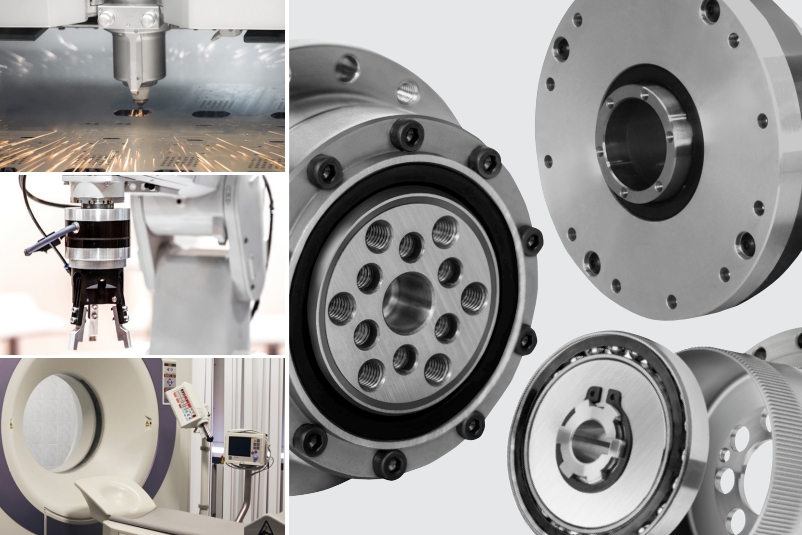
Keep an Eye on Nidec
Nidec’s Nagamori, say analysts, has an uncanny ability to predict industry trends. So far, so good!
The man with the knack
The arc of robotics is always in good shape for success whenever Shigenobu Nagamori starts dropping large amounts of cash into its future. These days the wallet is out and…he’s dealing!
As the founder, chairman and CEO of Kyoto-based Nidec, the billionaire 78-year-old Nagamori-san has been truly masterful at navigating—and thereby growing—Nidec (founded 1973) into the world’s largest maker of electric motors and components.

For robotics, Nidec, most importantly, is also the second-largest producer of gear reducers, particularly strain wave gears, used mainly in joints of robot arms. Number one is rival Shinagawa City-based Harmonic Drive Systems. However, Nagamori-san has plans to take the lead by 2025. And therein sits the cause for keeping a close eye on Nidec.
Impeccable planner, risk taker with billions to wager, and an absolute ace at growth through acquisition, Nidec has flourished under his guidance.
Nidec is the world’s largest supplier of motors used in home appliances, computer hard disk drives, robots and automotive parts such as seats and power steering, writes the Nikkei Asian Review.
Nidec Sankyo develops industrial robots for handling of glass substrates and wafers in environments such as clean rooms, vacuums, and at high temperatures.
“Nidec has been turning out electric car motors since 2018. It aims to grab 40% to 45% of the global market for such motors by 2030 by investing heavily in China, a large and rapidly growing market for electric vehicles.”
“I’ve made no mistakes in some 60 acquisitions, not a single one, whereas four out of five M&A deals by Japanese companies fail,” boasted Nagamori, back in 2018; and his batting average has remained 1.000 since.
Analysts say Nagamori has an uncanny ability to predict industry trends such as the rise of factory automation and the dramatic shift to electric vehicles [EVs].
See related:
Robot Gear Works Under the Hood Is All Japanese
Critical importance of robot parts gets pushed to the max
Temporary stumble
Seems his only mistake was the recent acquisition of new CEO, Jun Seki, from automaker Nissan, who lasted less than a year before Nagamori quickly returned (Seki now COO). Nidec’s operating profit fell to $287 million in the final quarter of the financial year (January-March) compared with a profit of $350 million a year earlier. Partly to blame is the $88-million loss Nidec suffered from suspensions of production at its Vietnam plant because of COVID lockdowns. Don’t feel too bad for Nidec, which saw overall sales rise 11 percent to $14 billion for the year.
Better than anything else, Nagamori knows that there’s a fortune to be made in the robot parts business that, in most cases, sees plants working 24×7 to meet the needs of the marketplace…and falling short of the mark. More capacity is needed! And much of that capacity is bound for robots in China. The goldmine of robot parts sales, like robots themselves, is China.

To meet demand, Nidec will build a new gear plant. The Kyoto plant currently produces 30,000 units a month, but Nidec will spend $80 million to enlarge manufacturing in the Philippines to 50,000 for a combined 80,000 per month.
Nagamori’s prediction: “This is going to become a market worth tens of billions of dollars.”
Just why that is the case can be seen in remarks from robot maker FANUC’s CEO Kenji Yamaguchi. “Automakers around the world are shifting their focus toward electrification [as in EVs], and I expect related investments in industrial robots to accelerate.”
Reasoning: EV engines are less complex to assemble, making robots—and many more of them at that—ideal on an EV engine assembly line, as well as quite handy assembling batteries and gears.
Such talk of expansion aims to tap growth in the automation market. Research firm Global Information forecasts the market for industrial automation, including software and peripheral equipment, will more than double to $28.9 billion in 2026 from $12.8billion in 2020.
And just to keep ahead of his own torrid pace, what does Nagamori-san do? How about nabbing two more great acquisitions: machine tool-makers OKK and Mitsubishi Heavy Industries Machine Tool. The acquisitions give Nidec increased capability to supply key robot components such as gears, transmissions and torque sensors, to cut delivery times and increase market share.
See related:
The Importance of Machine Tools
To Have and Have Not: Advanced Manufacturing’s Most Important Skill
Plus, Nagamori is now casting a glance toward acquisitions in semiconductors. “It’s risky to buy all semiconductors from other companies,” he told a gathering at a recent meeting. Nidec’s operating profit had also dipped because of rising material prices, copper for one, and a shortage of semiconductors, both of which are needed if you want to lead in electric motors.
Nidec is looking to capture a third of an expanding market for energy-saving electric car motors known as e-axles. Monthly sales of which doubled to 25,000 a month last December. Nidec will invest $2.3 billion to beef up EV motor production.
Next up, chips
Global supply chain problems with semiconductor shortages rankled his all-on, innovative spirit. So, what does Nagamori do? He recently tried to acquire Renesas—Japan’s top semiconductor maker—but, for as yet unknown reasons, his overture was rebuffed.
Failing that, he hires former Renesas executive Ryuji Omura to be Nidec’s deputy chief technology officer responsible for semiconductor development, which hints strongly about what a next move by Nagamori might look like.
It makes sense, in these white-hot days of automation and robot sales to keep an eye on a trustworthy weathervane. There’s one in Kyoto that bears some attention.
